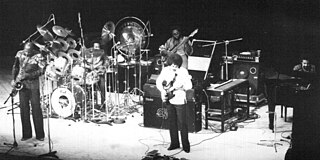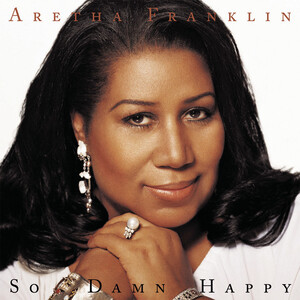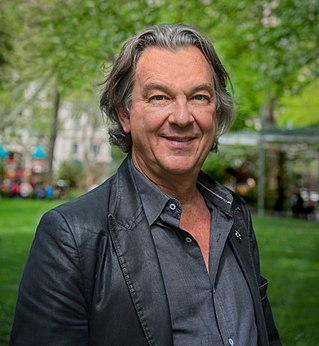Related Research Articles

Larry Graham Jr. is an American bassist and baritone singer, with the psychedelic soul/funk band Sly and the Family Stone and as the founder and frontman of Graham Central Station. In 1980, he released the single "One in a Million You", which reached the top ten on the US Billboard Hot 100. He is credited with the invention of the slapping technique on the electric bass guitar, which radically expanded the tonal palette of the bass, although he himself refers to the technique as "thumpin' and pluckin'".

War is an American R&B and progressive soul band from Long Beach, California, formed in 1969.

Robben Lee Ford is an American blues, jazz, and rock guitarist. He was a member of the L.A. Express and Yellowjackets and has collaborated with Miles Davis, Joni Mitchell, George Harrison, Larry Carlton, Rick Springfield, Little Feat, and Kiss. He was named one of the "100 Greatest Guitarists of the 20th Century" by Musician magazine.

"Mother" Maybelle Carter was an American country musician and "among the first" to use the Carter scratch, with which she "helped to turn the guitar into a lead instrument." It was named after her. She was a member of the original Carter Family act from the late 1920s until the early 1940s and a member of the Carter Sisters and Mother Maybelle group.

Car Wheels on a Gravel Road is the fifth studio album by American singer-songwriter Lucinda Williams, released on June 30, 1998, by Mercury Records. The album was recorded and co-produced by Williams in Nashville, Tennessee and Canoga Park, California, and features guest appearances by Steve Earle and Emmylou Harris.

Larry Eugene Carlton is an American guitarist who built his career as a studio musician in the 1970s and 1980s for acts such as Steely Dan and Joni Mitchell. One of the most sought after guitarists of his era, Carlton has participated in thousands of recording sessions, recorded on hundreds of albums in many genres, including more than 100 gold records, as well as for television and movies. He has been a member of the jazz fusion group the Crusaders and the smooth jazz band Fourplay, and has maintained a long solo career.

The Crusaders were an American jazz/jazz fusion group performing from the 1960s to the 2010s. The group was known as the Jazz Crusaders from their formation in 1960 until shortening their name in 1971. The Crusaders played a wide assortment of genres, including straight ahead jazz, urban R&B, R&B-based jazz, and the blues. The band reached a commercial apex in 1979 with their hit single "Street Life", featuring lead vocals by Randy Crawford, and their accompanying album of the same name.

Lee Mack Ritenour is an American jazz guitarist who has been active since the late 1960s.
Too Low for Zero is the seventeenth studio album by English musician Elton John, released in 1983. The album marked a comeback for John, whose previous four albums had failed to yield many enduring international hit singles, and had disappointing sales compared to his string of hit records released during the first half of the 1970s.

Joseph Leslie Sample was an American jazz keyboardist and composer. He was one of the founding members of The Jazz Crusaders in 1960, after which its name was shortened to "The Crusaders" in 1971. He remained a part of the group until its final album in 1991, and also the 2003 reunion album Rural Renewal.

This Fire is the second studio album by American singer-songwriter Paula Cole, released on October 15, 1996. According to the RIAA, the album has gone double platinum, selling over two million copies in United States and peaked at number 20 on the Billboard 200. According to the booklet, the album is dedicated to "the inner fire of all life. May our seeds of light open, brighten, and sow peace on earth".

The pedal harp is a large and technologically modern harp, designed primarily for use in art music. It may be played solo, as part of a chamber ensemble, or in an orchestra. It typically has 47 strings with seven strings per octave, giving a range of six and a half octaves.

Michael T. Mainieri Jr. is an American vibraphonist, known for his work with the jazz fusion group Steps Ahead. He is married to the singer-songwriter and harpist Dee Carstensen.

Having a Party is the fourth studio album by American family vocal group the Pointer Sisters, released in 1977 on the ABC/Blue Thumb label.

So Damn Happy is the thirty-fifth studio album by American singer Aretha Franklin. Her first studio album in five years, the album featured the Grammy Award-winning track "Wonderful", a single co-written and produced by Ron "Amen-Ra" Lawrence.

Acid Queen is the second solo studio album by Tina Turner. It was released in 1975 on the EMI label in the UK and on United Artists in the US. Although it is a Tina Turner solo album, the first single, "Baby, Get It On", was a duet with Ike Turner, her musical partner and husband at the time. Acid Queen was her last solo album before their separation and her departure from Ike & Tina Turner Revue.

"She's Gone" is a song written and originally performed by the American duo Daryl Hall and John Oates. The soul ballad is included on their 1973 album, Abandoned Luncheonette.

That's Right is a studio album by American musician George Benson. It was released through GRP Records on July 30, 1996. That's Right was Benson's first album released with the label after twenty years on Warner Bros. Records and produced by longtime producer, Tommy LiPuma. The cover photograph is by Andy Earl and captures Benson in Burnaby Street, Chelsea, London.

Stephen Barber is an American composer, arranger and musician, known for working with David Byrne, Keith Richards, John Legend, Natalie Merchant, T Bone Burnett, Rosanne Cash, the London Symphony Orchestra, Christopher Cross, Bonnie Raitt, Indigo Girls, Michael Stipe and Shawn Colvin.

Bad for Me is the fourth studio album by American jazz singer Dee Dee Bridgewater, released in 1979 by Elektra Records. The album reached at No. 29 on the Cashbox Top Jazz Albums chart and No. 30 on the Billboard Jazz Albums chart.
References
- ↑ "The Map: Dee Carstensen". AllMusic . Archived from the original on July 11, 2023. Retrieved May 26, 2024.
- 1 2 3 4 5 6 7 Arthur Wood (2006). "Dee Carstensen – Bio". Texas Tech University - Southwest Music Archive. Retrieved May 26, 2024.
- 1 2 3 4 Megan A. Bledsoe (2012). "The Harp in Jazz and American Pop Music" (PDF). University of Washington. pp. 38–40, 76, 96.
- ↑ "Dee Carstensen » Bio". nycrecords.com. Retrieved November 8, 2016.
- 1 2 3 4 Dylan Siegler (January 10, 1998). "Exit Nine's Carstensen Gets marketing Push Via GRP Deal". Billboard. Vol. 110, no. 2. p. 7 & 83.
- 1 2 3 4 5 6 Chris Morris (September 9, 1995). "Something NARM-ed his way comes; Two labels turn 10". Billboard . Vol. 107, no. 36. p. 97.
- 1 2 Garner, Dwight (February 6, 2008). "Living With Music: A Playlist by Meghan Daum". The New York Times . Retrieved January 21, 2018.
- 1 2 "Regarding the Soul". NYC Records. Retrieved June 4, 2024.
- 1 2 "Show Them The Way". Billboard. Vol. 110, no. 33. August 15, 1998. p. 12.
- 1 2 Jon Fojtik and Keith Zimmerman (June 5, 1998). "Summer Releases" (PDF). Gavin Report . No. 2209. p. 40.
- ↑ John Shepherd, Dave Laing, Peter Wicke, Paul Oliver, David Horn (2003). Continuum Encyclopedia of Popular Music of the World, Volume 2. Bloomsbury Publishing. p. 429. ISBN 9781847144720.
{{cite book}}: CS1 maint: multiple names: authors list (link) - ↑ Karine S. Moe, Dianna J. Shandy (2010). Glass Ceilings and 100-hour Couples. University of Georgia Press. p. 191. ISBN 978-0-8203-3404-2.